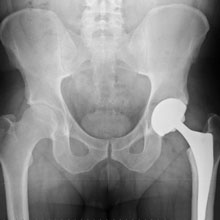Clinical or medical negligence occurs when a person suffers an injury or illness that was caused by the negligent act or omission of a healthcare professional. Though similar in many respects to most other types of personal injury, an instance of medical negligence is dealt with somewhat differently by the law.
Types of Injury or Illness
Among the most common types of injury caused by medical negligence are those that occur during birth. If doctors and midwives fail in their duty to deliver a baby safely, the child could develop extremely serious defects, such as cerebral palsy. Other common types of injury or illness include limb amputations, spinal damage and infection.
People who fall victim to medical negligence tend to be sick or injured already for the obvious reason that most instances arise in hospital or after visiting a GP. However, medical negligence claims can include various types of injury or illness, so it is sometimes difficult to distinguish between primary and secondary causes of harm.
Causes of Medical Negligence
Medical negligence can occur for all sorts of reasons, but among the most common are mistakes made during surgery. Complications under anaesthesia, misdiagnoses, poor treatment and incorrect prescriptions are other major causes of clinical negligence.
Negligence
Medical negligence is very similar to most other types of personal injury claim. The common law of England and Wales does treat medical negligence somewhat differently from other claims in tort, however. This is for the very good reason that there is a relatively high degree of risk involved in providing treatment for people who are ill or injured.
To claim compensation for medical negligence, the injured person must be able to prove that the healthcare professional (doctor, nurse, dentist, etc.) breached a duty of care. He or she must also be capable of demonstrating that this breach of duty caused the harm in question. For example, people who claim that their cancer was made worse by a doctor’s misdiagnosis must show that the doctor acted negligently and that by doing so their condition was exacerbated.
All this is much the same as required of any other personal injury claimant. The key difference is that the common law would not regard doctors as having acted negligently if they reached the standard of a responsible body of medical opinion. In other words, if doctors prescribe a course of treatment or carry out a procedure that is endorsed by a responsible division of the medical community, they are not likely to be held negligent.
What to Do
If you suspect that you may be the victim of medical negligence, it is important to seek professional medical opinion without delay. Understanding the nature and severity of the injury or illness is crucial in the circumstances.
It may seem obvious that a medical professional has acted negligently, but prospective claimants ought to weigh their options carefully when in possession of the facts. Many people choose to lodge a formal complaint with the Health Ombudsman regardless of whether or not they decide to litigate.
If compensation is sought, it is essential that the injured person seeks professional legal advice from a reputable law firm such as lawyers4patients.co.uk, which is based in Yorkshire and specialises in medical negligence. Claims for compensation must be made within three years from the date on which the cause of action occurred or, if later, three years from whenever the injured person became aware of the condition.











